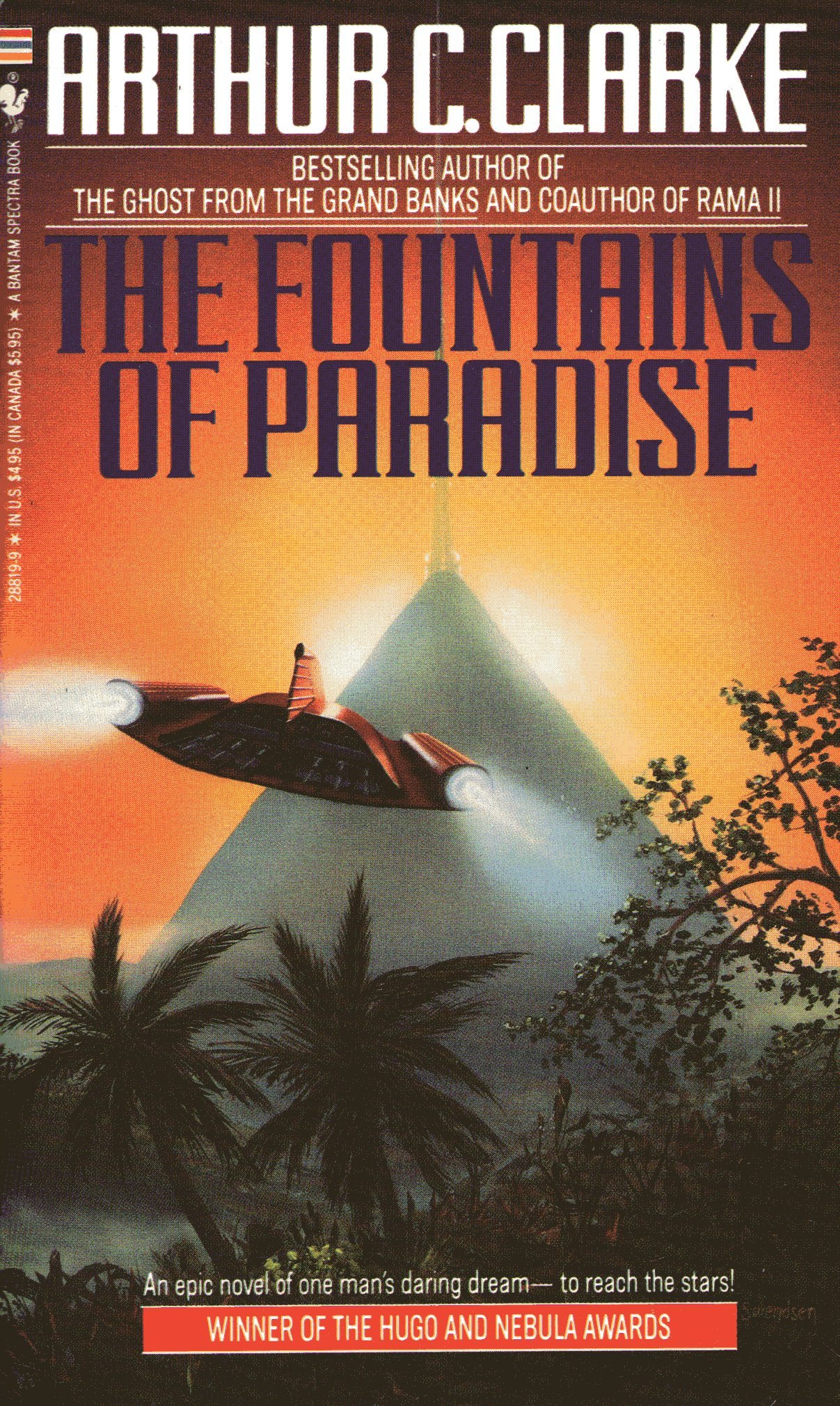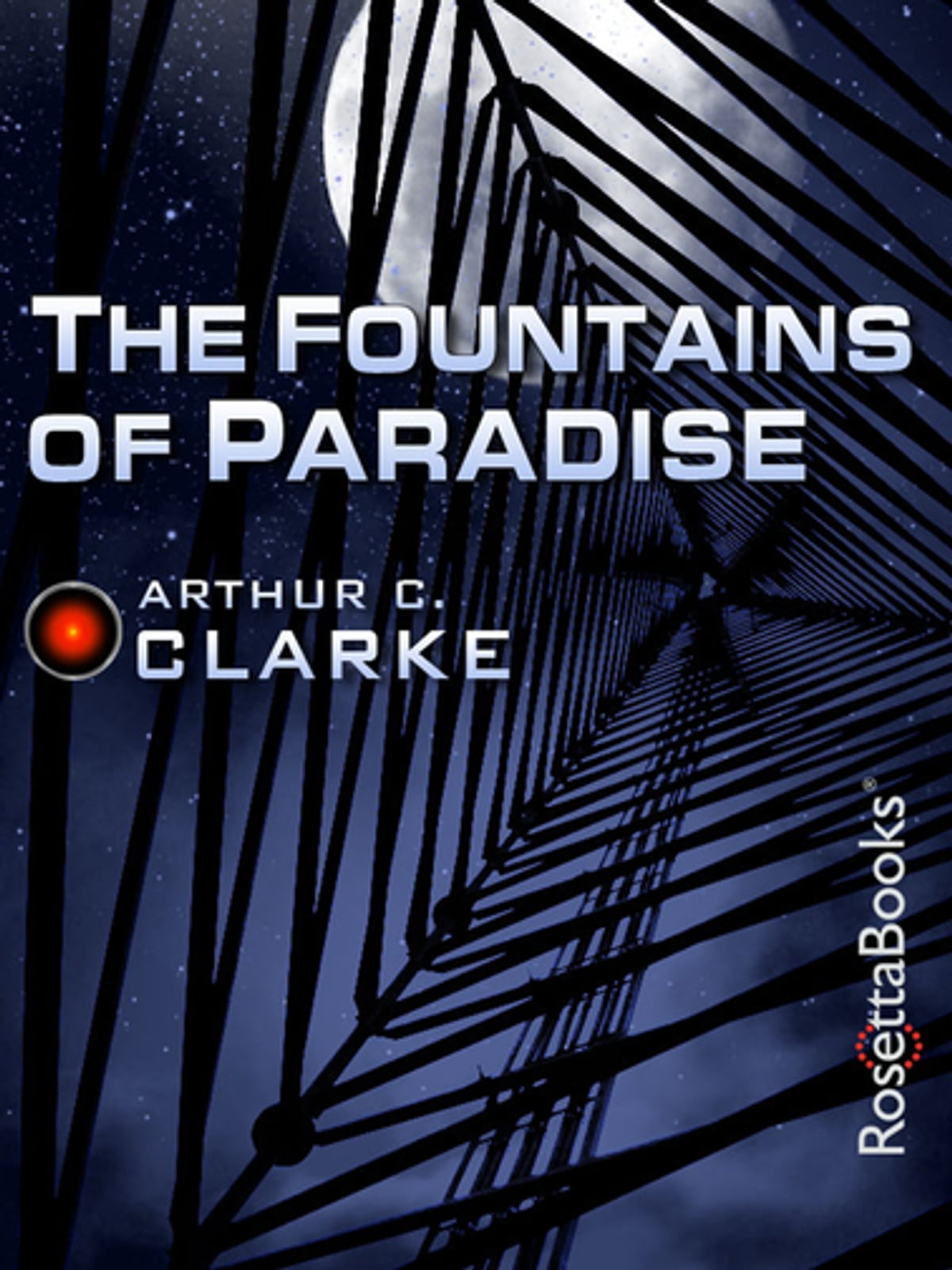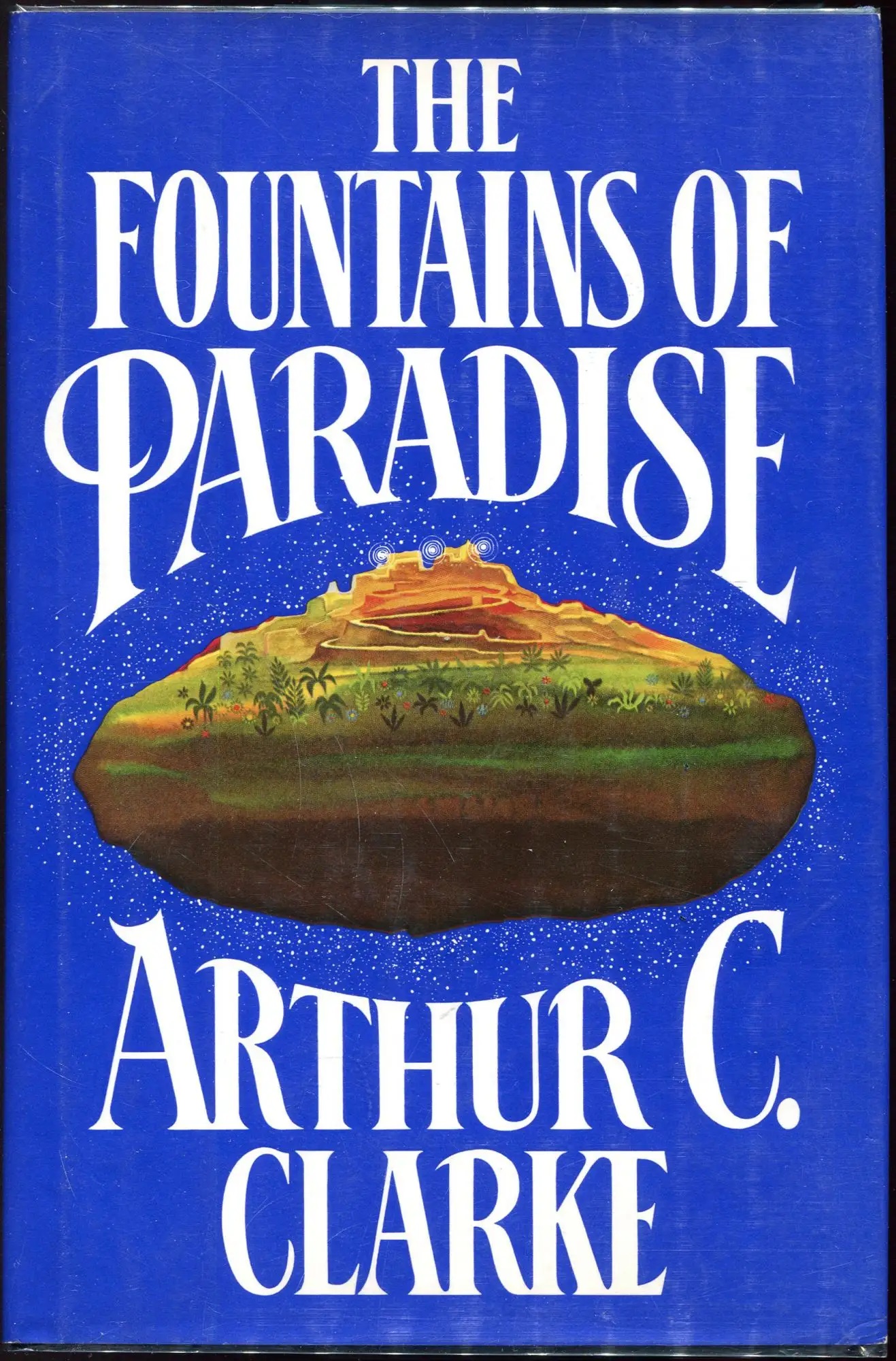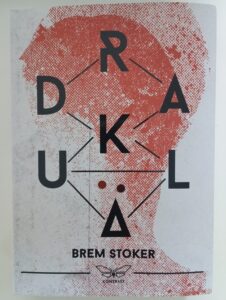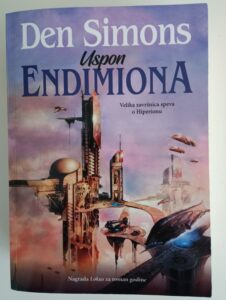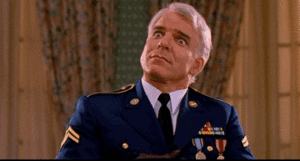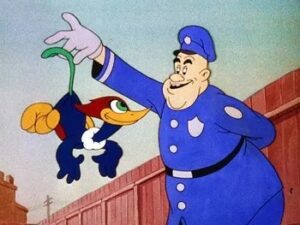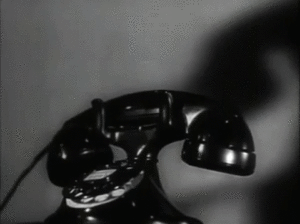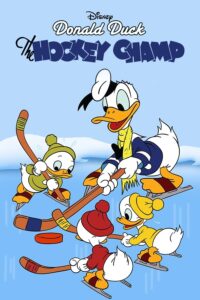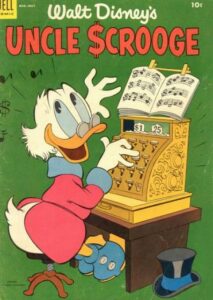The Fountains of Paradise (1979)
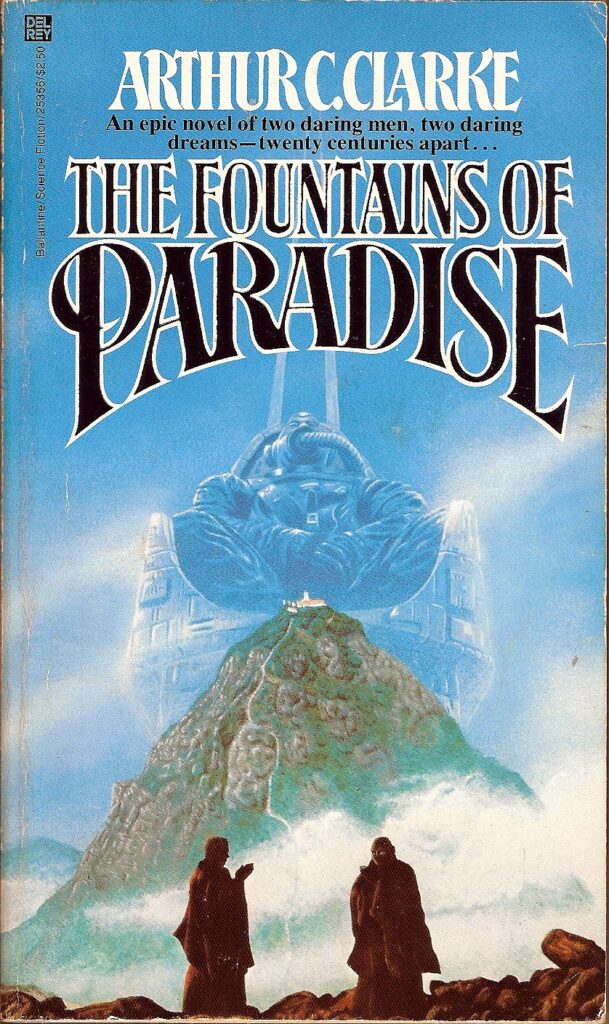
…………………………………………………
The Fountains of Paradise Book Review
The Fountains of Paradise is a 1979 science fiction novel by Arthur C. Clarke. It’s not among the author’s best works, but it’s still a pretty remarkable work.
………………………………………………….
“But there was no substitute for reality.
One should beware of imitations“
…………………………………………………..
…………………………………………………..
Vannevar Morgan strives to build a space elevator, but first he must go through many political, economic and religious obstacles in order to do it. This book ended up winning both the Nebula and the Hugo awards for best SF novel of the year, which is interesting as the two awards do not align all that often. Although not regarded among his best works, it deserves more attention for everything that the author got right.
First off, there is this very interesting mythological and ancient arc that goes concurrent with the modern SF storyline. That one is set in a country that is obviously Sri Lanka, which makes this novel obviously highly personal for Clarke, who went on to live in that country during his later period in life.
Although this section in the book with this ancient king doesn’t fully coalesce into the overall narrative, it was still reasonably engaging and intriguing. Yes, Clarke did criticize religion and especially Christianity a bit too heavily in the second half of the book, but this is still a novel that truthfully pinpoints how religion and science are actually able to co-exist. The roles of these Buddhist priests were particularly interesting and well explored in this work.
…………………………………………………..
…………………………………………………..
The idea of a space elevator instead of rockets as a means of interstellar travel was a novel one back then, but is now more mainstream. This just goes to show how Clarke has always been pricelessly prescient about the future. Yes, some of the Internet-like technology in this book was too primitive for the future as nobody could have predicted that this particular technology would be so quickly introduced to us, but other than that, the author’s vision of future is grounded in realism and achievable expectations.
The Fountains of Paradise has some of the standard pitfalls of Clarke novels, particularly the lack of strong characterization. Morgan is only serviceable while King Kalidasa is too mythical. Others are mostly forgettable. As is always the case with hard science fiction, character development is not crucial, but I still wanted for at least some characterization here.
What was interesting about the characters, however, is how diverse they were. There is a woman here and so many different ethnicities, which again made Clarke extremely prescient about Western countries and how huge of a melting pot they would become in the future. The cultural and religious clashes were wonderfully explored here.
There is this very fascinating ‘Rendezvous with Rama’-inspired subplot about an alien spaceship visiting the Solar System and communicating with humans. This section was very intriguing, grounded in reality and ultimately pleasingly optimistic as is the whole novel, but it still came out of nowhere and went away later, resulting in an uneven structure and pace.
…………………………………………………..
…………………………………………………..
Clarke’s writing here is wonderful. The historical chapters are staggeringly epic in their mythology while the modern sections were more human and believable. Both mostly worked. His decision to divide the novel into very short chapters was also terrific as it led to an easier read throughout. It’s a complex story of science, religion and politics and their relations that is still rather easy to follow, which is a great testament to Clarke’s skills as a science-heavy, but still engaging SF author. The dialogue is sparse here, but the ideas are well explored and the imagery is at times quite striking.
